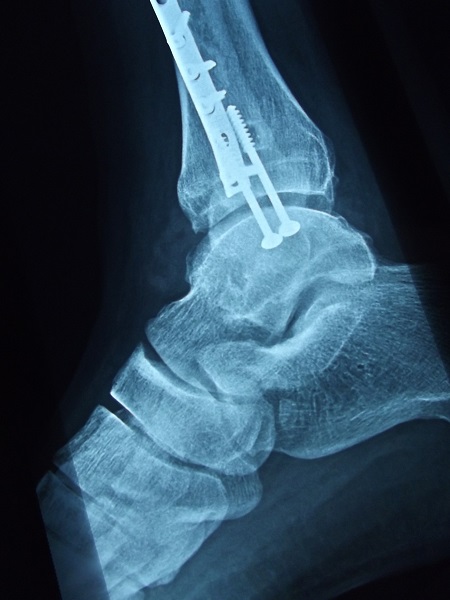Core strength often receives less attention than more visible fitness goals like weight loss or muscle building. However, it plays an integral role in virtually every movement your body makes and every physical task you undertake. A strong core forms the central link of your body, connecting the lower and upper body and enabling them to function as a unit. This often-overlooked component of physical health contributes significantly to posture, balance, athletic performance, and overall strength. By deepening the understanding of the benefits of core strengthening, readers can better appreciate its importance and take the necessary steps to improve it.
Contents
Supports Better Posture
Core muscles are the main stabilizers for the body. They provide the support necessary for the spine to hold up the body and maintain a good posture. When these muscles are strong, they prevent the body from slumping, keeping the spine in better alignment. A stronger core, therefore, can alleviate the common aches and pains associated with poor posture. Not only does it reduce the risk of back pain, but it can also lessen the strain on other muscles and joints, leading to better overall health.
In today’s world where many people spend long hours sitting at desks or looking down at smartphones, the issue of poor posture has become increasingly prevalent. The result is often chronic back pain and discomfort. However, by regularly engaging in exercises that target core muscles, it’s possible to reverse these negative effects and reclaim a healthy posture. This does more than improve one’s appearance; it can also lead to improvements in breathing, digestion, and even mood.
Enhances Athletic Performance
The impact of a strong core extends beyond daily activities and into the realm of sports and fitness. Many athletic movements rely on the core for stability and power. Whether it’s a golfer’s swing, a footballer’s kick, or a sprinter’s dash, these actions all originate from the core. Therefore, a strong core can significantly improve athletic performance, making movements more efficient and powerful.
Additionally, a well-conditioned core can help prevent sports-related injuries. The core muscles act as shock absorbers for jumps and rebounds and provide stability for quick, unpredictable movements common in sports. When these muscles are weak, other muscles have to pick up the slack, which can lead to strains and other injuries. By focusing on core strength, athletes can not only enhance their performance but also increase their resilience and longevity in their chosen sports.
Improves Balance
Stability and balance, essential for both sports and daily activities, are directly influenced by the strength of the core muscles. Whether it’s navigating uneven terrain during a hike or simply reaching for an item on a high shelf, a strong core keeps the body balanced and controlled. Balance isn’t just about preventing falls and stumbles; it’s also about being able to move and react swiftly and efficiently. A robust core makes these movements possible, giving individuals the confidence to move freely in their environment.
Moreover, as the body ages, balance becomes even more crucial. Falls are a leading cause of injuries among older adults, and improving balance can greatly reduce this risk. Regularly performing exercises that strengthen the core can help improve balance and coordination, thereby enhancing the quality of life as one grows older. The positive effects of core strengthening, thus, have far-reaching implications across the lifespan.
Boosts Functional Fitness
Functional fitness refers to the kind of strength and stability needed to perform daily activities with ease. Whether it’s lifting a heavy box, doing household chores, or playing with kids, functional fitness makes these tasks easier. A strong core directly contributes to this type of fitness, as it’s involved in almost every motion the body makes. A simple task such as picking up a grocery bag from the floor involves bending, twisting, and lifting—movements that all require core engagement.
More so, a strong core doesn’t only make these tasks easier; it also makes them safer. Lifting heavy objects or twisting the body in certain ways can lead to injury if the core muscles aren’t strong enough to support such movements. By enhancing core strength, tasks that could once lead to pain or injury can become much safer and more manageable. In essence, a strong core helps individuals perform better in their daily lives, with fewer risks and more ease.
Aids In Weight Loss
The metabolic benefits of core strengthening exercises are often overlooked, but they can contribute significantly to weight loss and management efforts. Engaging the core muscles burns calories, and the intensity of core exercises can lead to increased calorie burn even after the workout ends. This, coupled with a healthy diet and other forms of physical activity, can support weight loss goals.
Core strengthening can also play a crucial role in body toning. While weight loss alone may reduce the number on the scale, it may not always result in a toned appearance. Core exercises can help in shaping the body, especially the midsection. Therefore, while core strengthening contributes to weight loss, it also plays a vital role in improving body composition. In other words, it’s not just about losing weight—it’s also about creating a stronger, more defined physique.
Promotes Overall Body Strength
The core serves as the body’s central powerhouse. All movements, whether lifting a weight overhead, carrying groceries, or simply standing up from a chair, rely on the strength of the core muscles. Therefore, a strong core contributes to the overall strength of the body. This is why it’s often emphasized in strength training programs. Having a robust core is essential for performing strength training exercises safely and effectively.
Not only does core strength enhance performance in strength training exercises, but it also contributes to the gains made from such exercises. When the core is engaged and stabilized during strength training, other muscle groups can work more effectively. This means that every workout is more efficient, leading to greater strength gains over time. The role of the core in overall body strength is thus fundamental; it’s the lynchpin that holds everything together.
Reduces Risk of Injuries
A strong core contributes significantly to injury prevention. Whether it’s preventing sports injuries, as discussed earlier, or avoiding injuries in daily life, core strength is crucial. A strong core provides better stability, reducing the risk of falls. It also protects the spine during movements like lifting and bending, which can prevent back injuries.
Additionally, a robust core can protect internal organs and the central nervous system by providing an outer muscular shield. This defensive aspect of core strength is as important as its offensive, performance-enhancing aspects. By providing better balance, alignment, and shock absorption, core strength can reduce the likelihood of injuries and contribute to long-term health and well-being.
The Bottom Line
The benefits of core strengthening extend far beyond a well-toned physique. A strong core supports better posture, enhances athletic performance, improves balance, and boosts functional fitness. It aids in weight loss, promotes overall body strength, and reduces the risk of injuries. Regularly incorporating core-strengthening exercises into a fitness routine can lead to improvements in virtually all areas of health and well-being. It’s clear that the core is aptly named—it truly lies at the heart of physical fitness and health.









